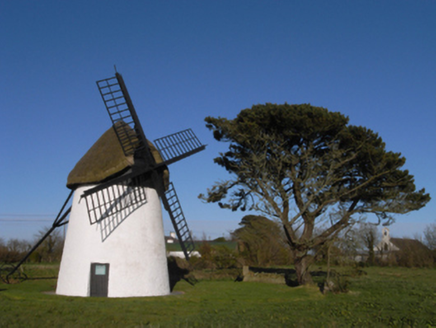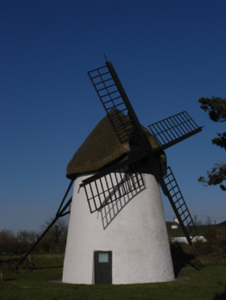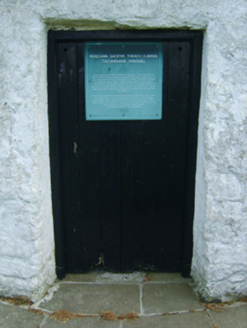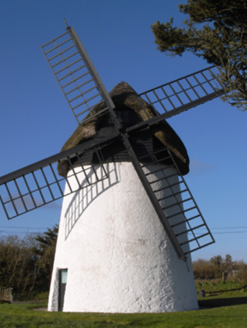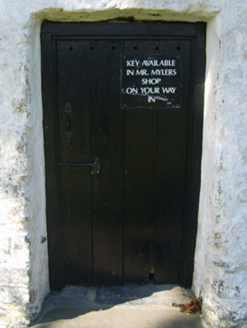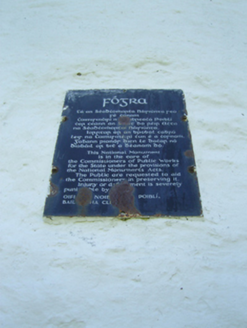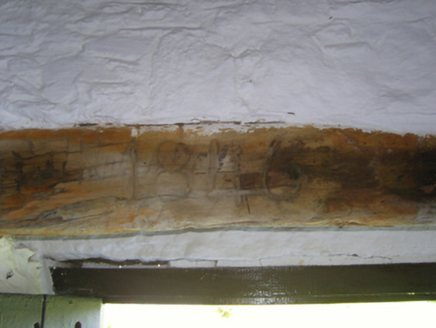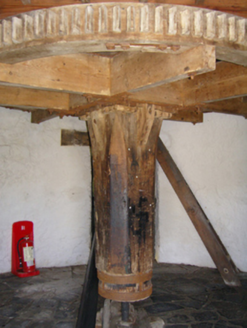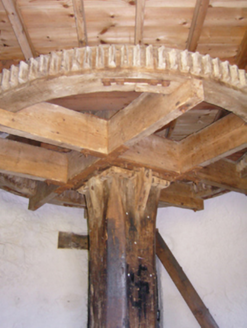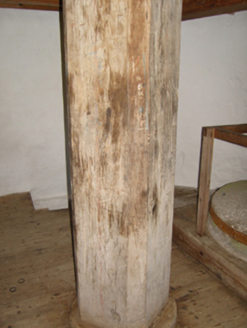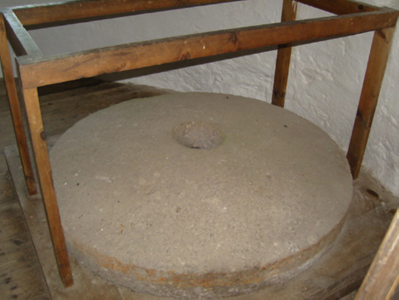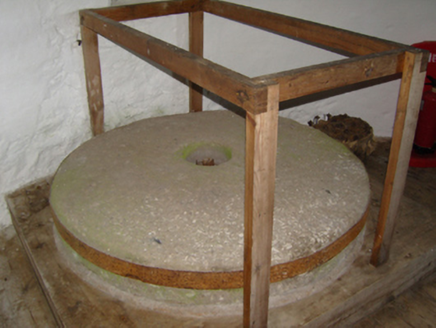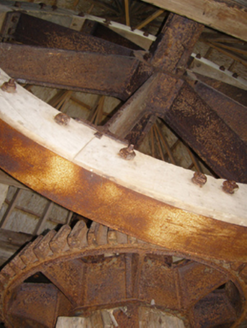Survey Data
Reg No
15705304
Rating
National
Categories of Special Interest
Architectural, Historical, Social, Technical
Original Use
Mill (wind)
Date
1845 - 1850
Coordinates
307779, 107450
Date Recorded
25/09/2007
Date Updated
--/--/--
Description
Freestanding single-bay three-stage tapering windmill, dated 1846, on a circular plan. In use, 1901. Disused, 1908-30. Repaired, 1930. Closed, 1936. Disused, 1940. Restored, 1953-73. Chicken wire-covered conical straw thatch roof with lead-capped exposed hazel lattice stretchers to apex having exposed steel scallops, timber boarded sail house with timber sails, and exposed hazel stretchers to eaves having exposed steel scallops. Limewashed roughcast coursed rubble stone battered walls. Square-headed opposing door openings with concealed dressings including inscribed rough hewn timber beam lintels ("1846") framing timber boarded doors. Square-headed window openings (upper stages) with limewashed rough hewn shallow sills, and concealed dressings including timber lintels framing fixed-pane timber fittings. Interior including (first stage): meal floor with stone flagged floor; (second stage): stone floor with timber boarded floor on timber joists; and (third stage): dust floor with timber boarded floor on timber joists. Set in landscaped grounds.
Appraisal
A windmill erected (1846) by James Moran (d. 1868) representing an important component of the mid nineteenth-century industrial heritage of County Wexford [SMR WX053-006----]. The windmill was one of five working windmills in County Wexford at the turn of the twentieth century but had fallen into disrepair by the time it was acquired (1930) by Garry Murphy (d. 1953). Murphy repaired the windmill and replaced damaged machinery with parts reclaimed from a storm-damaged windmill at Ballyfane Crossroads [SMR WX053-080----]. The windmill, the last working mill of its kind in the country, was restored (1953-73) by the Office of Public Works and is a National Monument in State Guardianship [0457].
